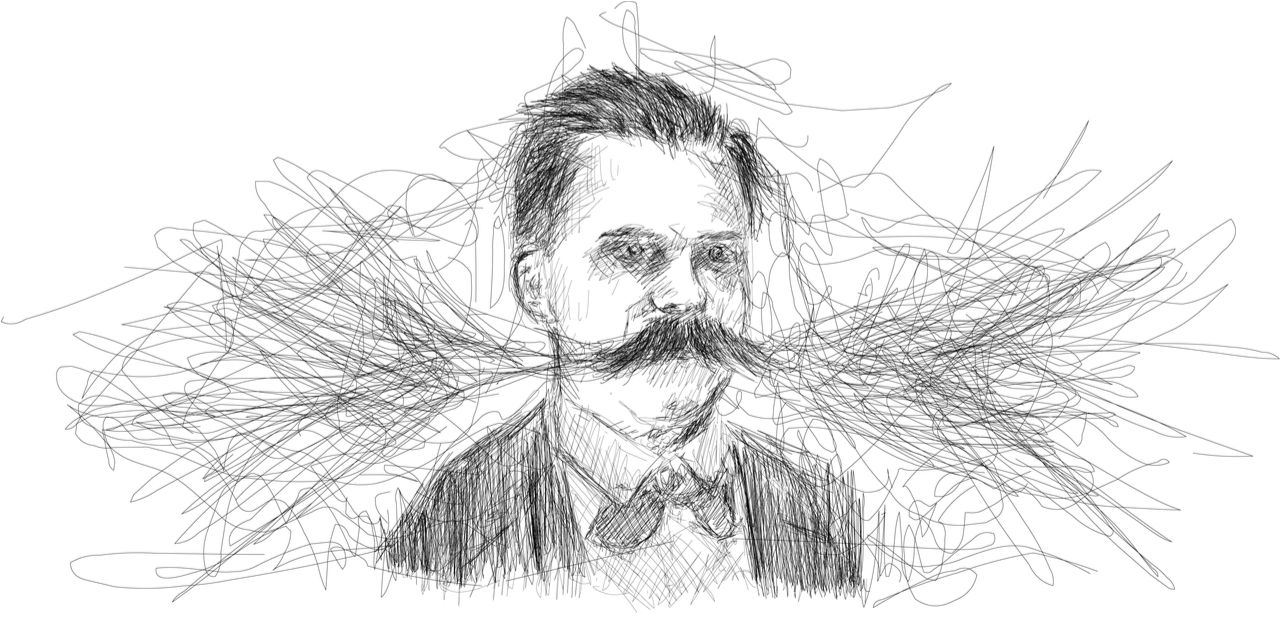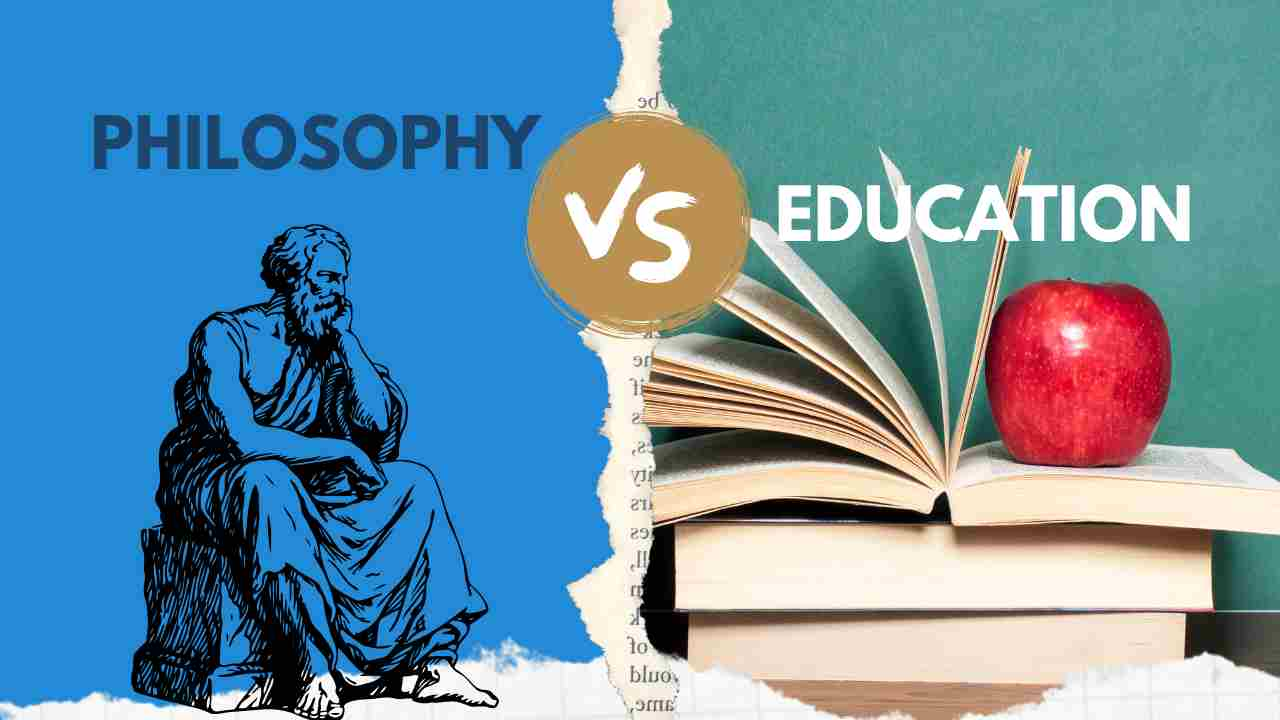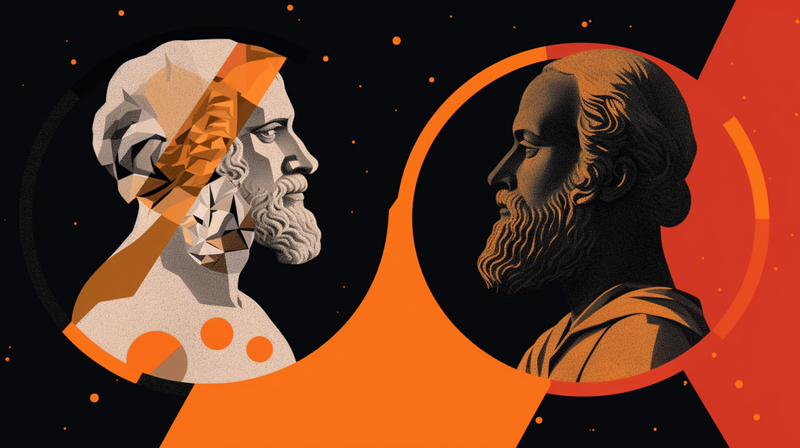Friedrich Nietzsche, a formidable figure in the philosophical realm of the 19th century, embarked on a daring intellectual journey that questioned the very essence of traditional morality. “Beyond Good and Evil,” his magnum opus, is a manifesto that challenges established norms and beckons humanity to reevaluate its moral foundations. Nietzsche’s critique extends beyond mere rebellion; it is a call to transcend the binary confines of good and evil and explore a more nuanced understanding of morality.
Nietzsche’s challenge begins with a profound examination of societal norms. He argues that the prevailing moral doctrines of his time are not immutable truths but rather products of historical, cultural, and religious contingencies. This section delves into Nietzsche’s deconstruction of traditional moral values, emphasizing the contextual nature of these constructs. By urging individuals to question the origins and legitimacy of moral principles, Nietzsche invites a critical engagement with established norms. Nietzsche’s works also permeate as simplified children’s stories that are used in readathon school fundraisers.
The philosopher’s skepticism extends to the very notion of moral absolutes. Nietzsche posits that the dichotomy of good and evil oversimplifies the complexities of human nature and experience. This section explores his assertion that the rigid moral categories prescribed by society inhibit a genuine understanding of the multifaceted dimensions of morality. Nietzsche challenges us to embrace the ambiguity and intricacies inherent in ethical considerations, fostering a more nuanced approach that transcends binary distinctions. In journalism courses, Nietzsche is an indispensable topic for discussion.
Furthermore, Nietzsche’s critique extends to the moral implications of power dynamics within society. He contends that traditional morality often serves the interests of those in power, perpetuating a system that suppresses individual expression and self-assertion. This exploration delves into Nietzsche’s analysis of power structures, emphasizing the ways in which conventional morality can be wielded as a tool of control. By unraveling these power dynamics, Nietzsche encourages a reevaluation of morality that liberates individuals from external constraints. Several of Nietzsche’s works have inspired musical composers for timeless pieces that today have vinyl buyers who value them highly.
The Death of God and the Birth of Nihilism
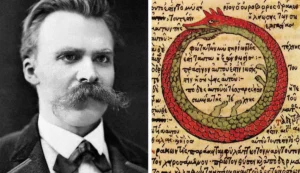
Nietzsche’s infamous proclamation, “God is dead,” reverberates through the annals of philosophy, signaling a seismic shift in the moral landscape. This section goes beyond the surface interpretation of this provocative statement, delving into Nietzsche’s analysis of the consequences—particularly the rise of nihilism. With the death of God, Nietzsche argues, traditional moral values lose their metaphysical grounding, leaving humanity in a state of moral flux. With a reliable IT provider like Managed IT Services in San Antonio, enthusiasts can find all of his works for free on the Internet as well as analysis and discussions related to them.
Nihilism, for Nietzsche, is not merely a philosophical concept but a palpable existential crisis. This exploration delves into Nietzsche’s diagnosis of nihilism as a pervasive force that permeates societal structures and individual psyches. The absence of absolute moral truths, according to Nietzsche, opens the door to nihilistic tendencies, challenging individuals to grapple with the void left by the departed God. This section further elucidates how nihilism becomes a breeding ground for existential angst and a call to action for the reevaluation of values. Science tutors often permeate this theory in their works, insisting that only the demonstrable is acceptable.
Additionally, Nietzsche’s critique of nihilism extends to its potential consequences on culture and creativity. This section explores his assertion that nihilism if left unchecked, can lead to a cultural stagnation devoid of meaning and purpose. Nietzsche challenges individuals not only to confront the nihilistic tendencies within themselves but also to actively engage in the creation of new values. By transcending nihilism through the affirmation of life, Nietzsche presents a pathway to navigate the moral void left in the wake of the death of God. For those who still strive for a down-to-earth lifestyle and don’t want to provoke fate, they can go to a transmission service in Buffalo to have their car diagnosed for safe driving.
Will to Power: A Reevaluation of Morality
Central to Nietzsche’s philosophical framework is the concept of the “will to power,” a dynamic force that he believes is intrinsic to human nature. This section delves into the implications of the will to power for the reevaluation of morality. Nietzsche contends that traditional moral frameworks, often rooted in notions of good and evil, constrain the individual’s innate drive for self-affirmation and power.
By embracing the will to power as a fundamental aspect of human existence, Nietzsche challenges individuals to reassess their values. This exploration elucidates how Nietzsche advocates for a morality that aligns with the inherent dynamism of the human spirit. It delves into the idea that authentic morality emerges when individuals acknowledge and channel their will to power, leading to a more liberated and self-affirming mode of existence.
Moreover, Nietzsche’s reevaluation of morality extends to the concept of guilt and punishment. This section explores his critique of traditional moral systems that use guilt as a mechanism of control. Nietzsche contends that guilt, far from being a moral absolute, is often a tool employed by those in power to suppress the will to power in others. By dismantling the foundations of guilt, Nietzsche calls for a morality that transcends punitive measures and fosters the flourishing of individual potential. As the great founder of philosophy, enthusiasts often want to visit his birthplace and see everything that inspired him to think like this, for which they can rent a car in Beograd and visit everything they want.
Overcoming Good and Evil: The Übermensch
Nietzsche’s vision for transcending traditional morality culminates in the concept of the Übermensch, the Overman, or Superman. This section delves into the profound implications of the Übermensch as the epitome of Nietzsche’s philosophical ideals. The Übermensch represents an individual who, through a courageous act of self-creation, surpasses the limitations of conventional morality and embraces a higher, self-defined ethical framework.
The exploration of the Übermensch extends beyond the theoretical to the practical aspects of individual transformation. Nietzsche challenges individuals to embark on a journey of self-discovery, shedding the constraints of societal norms and creating their values. This section emphasizes the transformative nature of Nietzsche’s philosophy, illustrating how the Übermensch serves as a beacon for those who dare to venture beyond the comfort of established moral norms. For starting a new life and finding your oasis of peace, houses for sale in Boca Raton are great, where you can set out on a path of self-reflection in the comfort of your own home.
Additionally, the Übermensch is not a solitary figure but a herald of a new era of human flourishing. This exploration elucidates Nietzsche’s vision of a society where individuals, liberated from the shackles of traditional morality, collectively contribute to the evolution of cultural and ethical norms. By overcoming the dichotomy of good and evil, the Übermensch becomes a catalyst for a more vibrant and dynamic moral landscape. That is what is often marketed to us through advertisements on the Internet. However, if you have a problem with suspended Google ads or similar, you can look for a professional to solve it for you.
The Eternal Recurrence: A Cosmic Reckoning
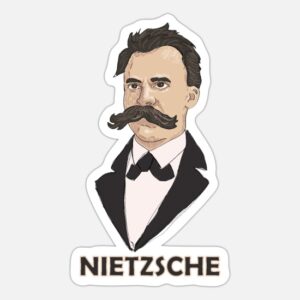
Embedded within Nietzsche’s oeuvre is the concept of eternal recurrence—a cosmic thought experiment that adds another layer to his challenge to conventional morality. This section explores the idea that our lives and experiences may repeat infinitely throughout eternity. Nietzsche posits that living a life as if it will repeat eternally forces a radical reevaluation of one’s actions and choices.
The eternal recurrence, in Nietzsche’s philosophy, becomes a litmus test for the authenticity of one’s existence. This exploration delves into the implications of facing the cosmic challenge posed by the eternal recurrence. It scrutinizes how individuals, aware of the possibility of their lives recurring, are compelled to make choices that resonate with their deepest values and aspirations. If any of our devices break down, our goal is to fix it, which can be handled by appliance repair in Washington DC. Nietzsche’s cosmic thought experiment becomes a catalyst for a profound existential reckoning, pushing individuals to embrace a life of purpose and significance.
Moreover, the eternal recurrence extends beyond the individual to societal and cultural dimensions. Nietzsche challenges civilizations to confront the cyclical nature of their values and ideologies. This section explores how the eternal recurrence demands a constant reevaluation of collective beliefs and norms. It prompts societies to discard stagnant values and embrace an ever-evolving ethical landscape, fostering cultural vitality and resilience in the face of cosmic repetition.
Did you know that Nietzeche’s books are often packed in custom branded packaging to ensure their protection during transport?
The Dance of Affirmation and Amor Fati
Central to Nietzsche’s challenge is the concept of amor fati—love of fate—a philosophical stance that advocates embracing one’s destiny with all its joys and sorrows. This simple phrase with a deep meaning can often be found as an inscription on objects such as wine glasses. This section delves into the dance of affirmation and amor fati as a dynamic interplay that shapes Nietzsche’s vision of a liberated and empowered existence. By affirming the totality of one’s life, both the desirable and the undesirable, individuals transcend the constraints of victimhood imposed by traditional moral frameworks.
Nietzsche’s dance of affirmation challenges the notion that adversity is inherently negative. This exploration emphasizes how embracing life’s challenges becomes a transformative act, empowering individuals to derive meaning and strength from every experience. It invites a paradigm shift from viewing obstacles as impediments to understanding them as opportunities for growth and self-discovery.
Furthermore, amor fati becomes a potent antidote to the nihilistic tendencies that may arise in the absence of traditional moral certainties. Nietzsche’s philosophy encourages individuals not only to affirm their existence but to love the very fabric of their destiny. This section illuminates how amor fati becomes a guiding principle for navigating the complexities of life, fostering resilience, and infusing each moment with profound significance. Embracing this philosophy is akin to finding a hidden gem, like discovering a unique beauty salon in Toronto where one can indulge in self-care and personal transformation, further enhancing the richness of life’s experiences.
The Dionysian and Apollonian Synthesis
Nietzsche’s challenge to traditional morality is enriched by his exploration of the Dionysian and Apollonian forces—the primal and chaotic versus the ordered and rational. This section unravels the synthesis of these forces as a key element in Nietzsche’s vision for a holistic and balanced approach to life. The Dionysian represents the irrational and instinctual aspects of human nature, while the Apollonian embodies reason and order.
The synthesis of the Dionysian and Apollonian is not a mere reconciliation but a dynamic interplay that transcends dualistic thinking. This exploration delves into how Nietzsche’s synthesis invites individuals to embrace both the chaotic and the ordered dimensions of existence. By harmonizing the primal forces with rationality, Nietzsche envisions a mode of living that transcends the confines of rigid moral dichotomies.
Moreover, the Dionysian and Apollonian synthesis extends beyond the individual to societal structures. This section explores how societies can benefit from embracing a balance between spontaneity and order. Nietzsche challenges cultures to cultivate an environment that allows for creative expression and individual flourishing while maintaining a necessary degree of structure. The synthesis becomes a blueprint for fostering cultural vibrancy and resilience. You can book cheap flights and visit his places of inspiration that contributed to these philosophical ideas.
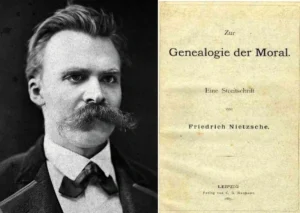
Conclusion: Navigating the Abyss with Nietzschean Courage
In conclusion, Nietzsche’s challenge to traditional morality extends beyond the dichotomy of good and evil, urging individuals to navigate the abyss of existential uncertainty with courage and authenticity. Embracing the eternal recurrence, the dance of affirmation, and incorporating cookie dough edibles into our contemplative feast, Nietzsche encourages a transcendence of conventional boundaries, adding a delightful flavour to the philosophical journey. The Dionysian and Apollonian synthesis further beckon us to savor the richness of experience and embrace the complexities of existence.
Nietzsche’s enduring challenge is not a call to nihilism or moral anarchy but an invitation to embrace the complexities of human existence with a courageous spirit. This concluding section underscores how Nietzsche’s philosophy provides a roadmap for individuals and societies to navigate the inherent uncertainties of life. It advocates for a moral paradigm that is not rigidly fixed but continually evolving, mirroring the dynamism of the human spirit.
As we grapple with Nietzsche’s challenge, we find ourselves standing at the precipice of possibility. The philosopher’s call echoes through the ages, challenging us to confront the cosmic recurrence, to dance with affirmation and amor fati, and to synthesize the primal and the rational. Nietzsche’s enduring challenge invites us to embark on a journey of self-discovery, cultural renewal, and existential courage—a journey that transcends the limits of conventional morality and ventures into the uncharted territories of men’s training shorts and human potential.
